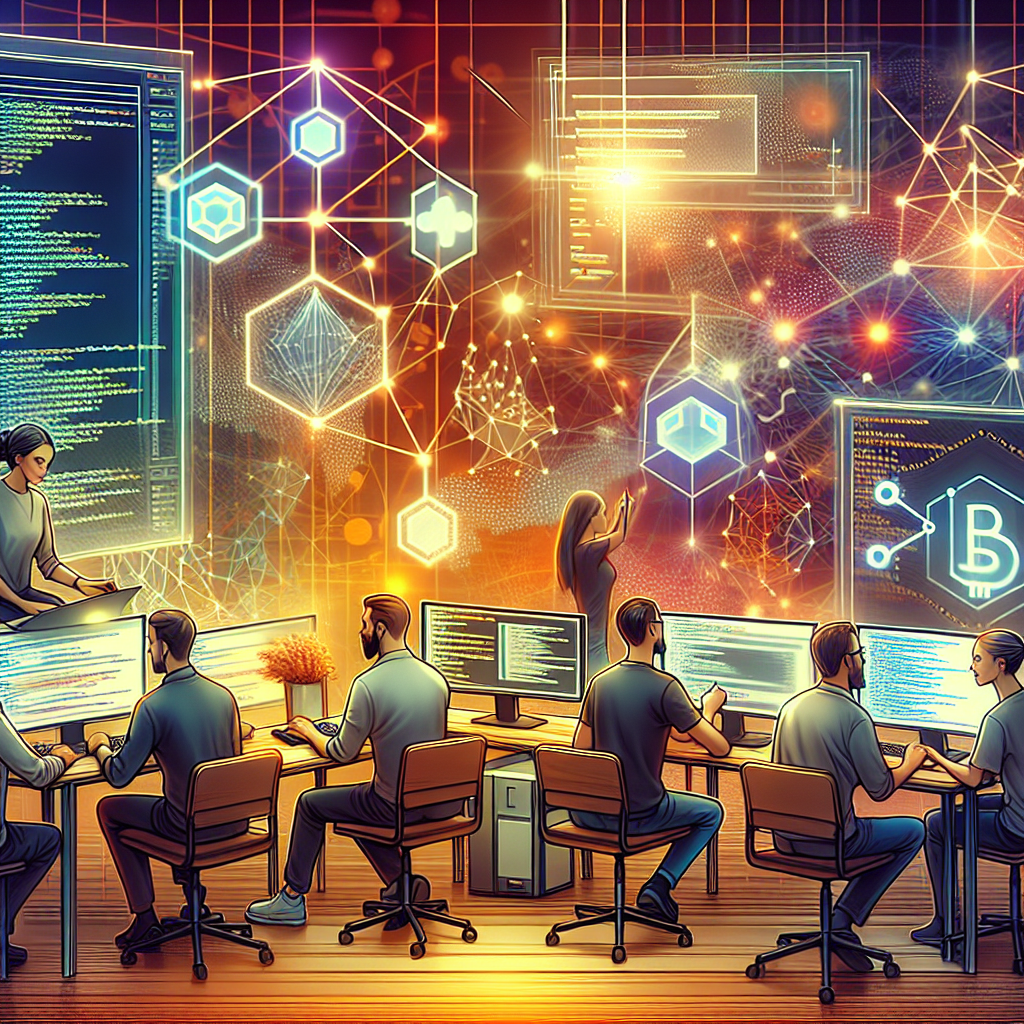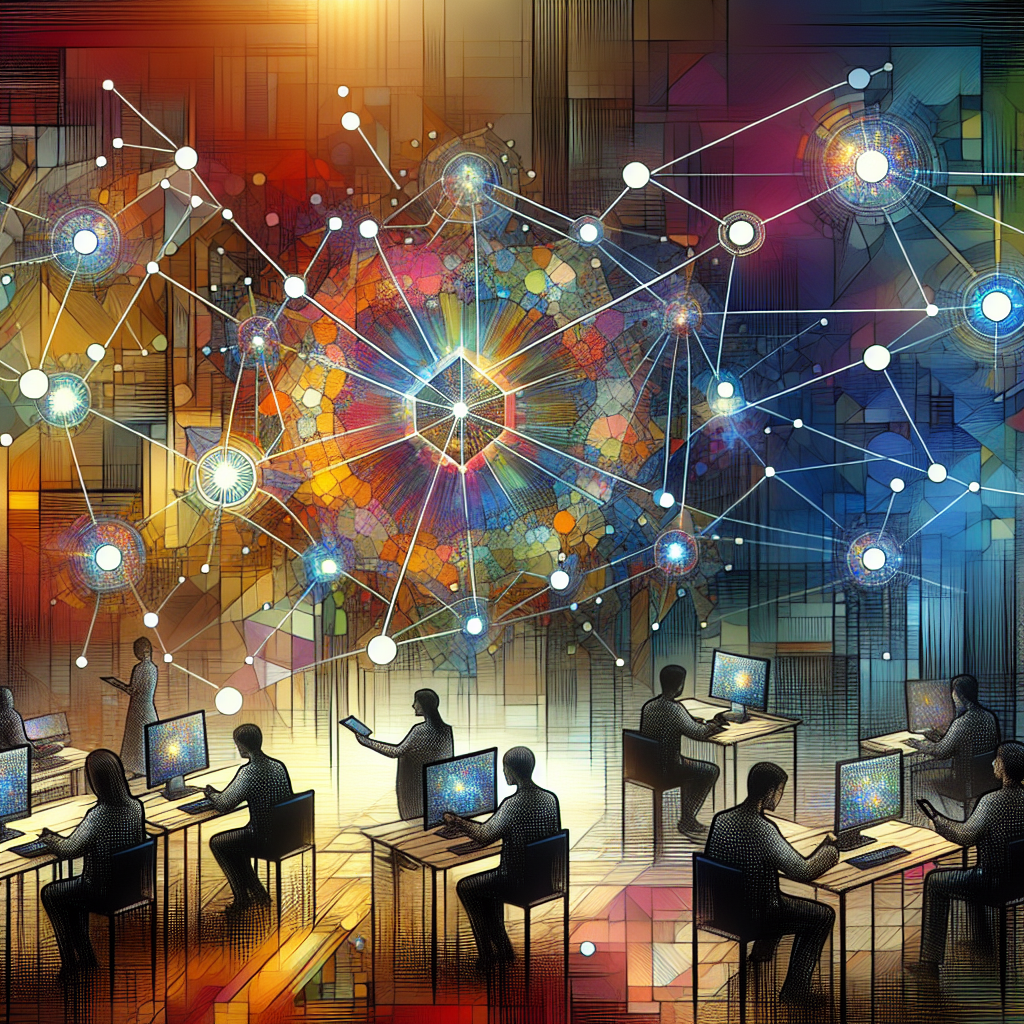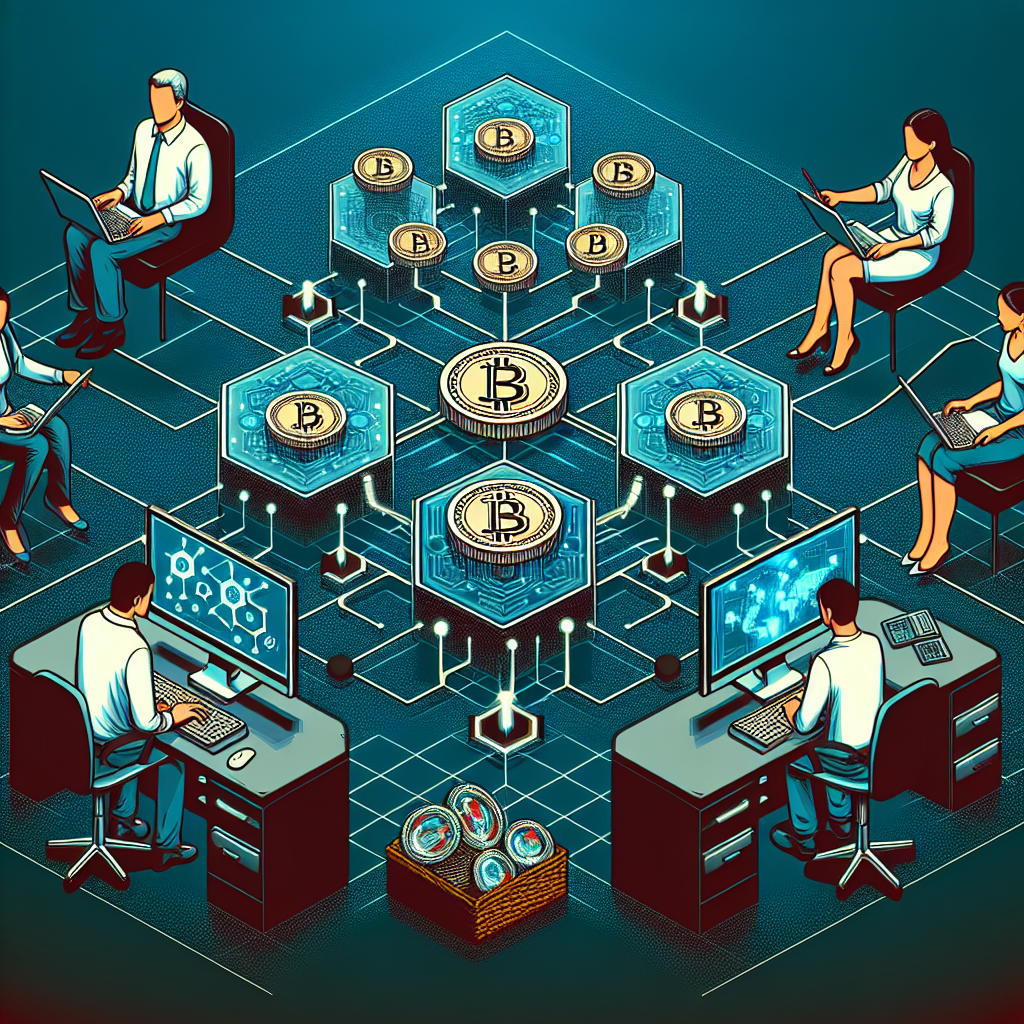
In a world thats becoming increasingly reliant on digital technology, its crucial to understand the foundations of new innovations. Thats where decentralized applications (often called DApps) step in. But what does a decentralized application mean? ⭐
Simply put, a decentralized application operates on a blockchain or peer-to-peer network rather than being hosted on a central server. This means no single entity controls the application, making it more transparent and secure. Imagine a social media platform where you have complete authority over your data, and not a company that can sell it to advertisers. Wouldn’t that feel empowering? ⭐
As of 2023, over 300 million users globally are interacting with DApps, and this number is expected to grow amidst rising concerns about data privacy and security. In fact, according to recent statistics, more than 59% of consumers now prioritize using applications where they have more control over their personal data. This significant shift towards decentralization presents a unique opportunity for businesses and individuals alike.
For example, consider a gaming platform that uses decentralized services. Unlike traditional gaming ecosystems, where developers may manipulate game outcomes or rush game releases, DApps ensure that players enjoy a fair and transparent experience. This is a game-changer! ⭐
Understanding how a decentralized system works is quite fascinating. Instead of relying on a central server, transactions and data are managed through a network of nodes. When a user performs an action—like sending cryptocurrency—this transaction spreads through the network, validated by numerous nodes as opposed to one solitary source. This enhances security and minimizes the risk of hacks. ⭐️
| Characteristics of DApps | Traditional Apps |
|---|---|
| Open source | Closed source |
| Decentralized control | Centralized control |
| Token-based incentive structure | No token-based incentives |
| Resilience to censorship | Prone to censorship |
| Transparent transactions | Opaque transactions |
| More secure due to multiple nodes | Less secure; vulnerable to attacks |
| Community-driven development | Corporately driven development |
| Requires cryptocurrency for transactions | Uses traditional currency or credit systems |
| Programmable logic through smart contracts | Limited programmability |
| Global accessibility | Regional restrictions |
The most significant advantage of decentralization in DApps lies in their revolutionary nature. As we transition to Web3—a new version of the internet—decentralization is essential for building trust in online interactions. Imagine a world where fraud is virtually eradicated, and every party involved can verify a transaction without third-party interference. This level of transparency is what sets DApps apart and why decentralized applications are needed more than ever. ⭐
Are you intrigued by the potential of DApps and ready to take the plunge? Creating a decentralized application might seem daunting, but our professional specialists at webmaster.md can guide you through every step of the process. With over 20 years of experience, we’re the only ones in the region offering a full spectrum of services, from development to technical support, all in one place. ⭐
Don’t hesitate! Contact our customer relations manager, Arsenii, at +373 601 066 66 or visit our website webmaster.md to discuss how we can help you shape your digital future!

In today’s fast-paced digital world, the need for innovative solutions has never been more pressing. So, why are decentralized applications (DApps) needed? The answer can be found in the rising demand for security, privacy, and efficiency across various industries. ⭐
To understand their impact, let’s explore a few scenarios where DApps can make a significant difference:
Data breaches have become alarmingly common, with over 30% of businesses experiencing a data breach in the last year alone. Traditional applications often store sensitive information on central servers, making them attractive targets for hackers. DApps, on the other hand, use blockchain technology and decentralized storage, which dramatically reduces the likelihood of unauthorized access. ⭐
For instance, consider a healthcare provider managing patient records. With a decentralized service, patients would have control over their data, granting access only to authorized personnel. This increases trust and significantly enhances data security—essential in a field where confidentiality is paramount.
In a world where trust in institutions is waning, DApps bring a refreshing change. By leveraging smart contracts, which automatically execute agreements when specific conditions are met, businesses can foster a level of openness that traditional applications simply cannot. ⭐
Take the financial sector, for example. With decentralized finance (DeFi) applications, users can lend, borrow, or trade assets without intermediaries. This not only reduces costs but also provides users with complete visibility into transactions. According to recent studies, over 45% of consumers are more likely to engage with businesses that employ transparent practices.
Time is money, and in business, efficiency is key. Many organizations face delays due to bureaucracy and manual processes. DApps can automate operations, cutting down on time wasted and ensuring smoother workflows. For instance, supply chain management can benefit immensely from DApps. By tracking products on a blockchain, businesses can ensure transparency and traceability from production to delivery, significantly reducing operational hurdles. ⭐
It’s no secret that innovation is the lifeblood of modern business. DApps empower developers to create solutions that are not limited by central authority constraints. Imagine a community of developers collaborating to enhance an application’s features through open-source contributions. This not only accelerates development but also fosters a culture of creativity. ⭐
For example, consider the gaming industry, where developers can create immersive experiences that are influenced directly by player feedback. DApps allow for a player-driven economy, where in-game assets can be bought, sold, or traded seamlessly. This kind of community participation can lead to more engaging gameplay.
One of the most revolutionary aspects of DApps is tokenization—the ability to create digital tokens that represent ownership of assets. These can range from art and music to real estate and even shares of a company. Tokenization not only democratizes access to investment but also introduces new economic opportunities. ⭐
For instance, an artist could tokenize their work, allowing fans to invest directly and share in future royalties. This creates a deeply engaging experience for users while ensuring that creators receive their fair share of the profits.
| Benefits of DApps | Traditional Applications |
|---|---|
| Decentralized ownership | Centralized control |
| High transparency and trust | Limited transparency |
| Enhanced data security | Prone to data breaches |
| Open-source community collaboration | Closed development environment |
| Faster transaction speeds | Slower due to intermediaries |
| Reduced operational costs | Higher operational costs |
| New revenue streams through tokenization | Limited to traditional models |
| User-driven innovation | Company-driven innovation |
| Global accessibility | Restricted access |
| Immutable records | Editable records |
The need for decentralized applications in modern business is clear. From enhancing security to driving innovation, DApps are redefining how we interact with technology. If you’re ready to dive into the world of decentralization and discover how it can elevate your business, reach out to us! Our team at webmaster.md is here to help. With 20 years of experience and a promise to deliver all services in one place, you can always count on us. ⭐
Contact our customer relations manager, Arsenii, at +373 601 066 66 or visit webmaster.md today to start your journey towards a decentralized future!

When we talk about decentralized applications (DApps), its crucial to understand how they function and what sets them apart from traditional applications. So, how does a decentralized system work? Let’s take a deep dive into the core mechanics that empower DApps and make them a game-changer in the digital landscape. ⭐
At its heart, decentralization means that no single entity has control over the entire system. Instead, a decentralized application is built on a network of computers (or nodes) that work collaboratively to validate and process transactions. This intrinsic design enhances security, reduces downtime, and promotes user trust. ⭐
Lets break down how a typical transaction happens within a decentralized application:
This entire process takes only a matter of seconds, even though it involves multiple systems working together to ensure security and accuracy. The result? A trustless interaction where both parties can engage without the need for a middleman. ⭐
Understanding how DApps work is essential, but seeing real-world applications in action makes it even clearer. Here are a couple of compelling use cases:
While DApps offer numerous advantages, challenges remain, particularly regarding scalability and user experience. Blockchain networks often face congestion, which can slow down transactions. However, solutions like Layer 2 scaling are emerging, making DApps more efficient and accessible. ⭐
As blockchain technology continues to evolve, more industries will likely adopt decentralized applications, pushing the boundaries of innovation and efficiency.
Are you considering the implementation of decentralized services in your business operations? Nows the time to explore the potential of DApps! With professional support from webmaster.md, we can help you navigate the complexities of creating an effective decentralized application tailored to your needs. Our track record speaks for itself, with over 20 years in the industry. ⭐
Connect with our customer relations manager, Arsenii, at +373 601 066 66 or visit webmaster.md to learn how we can assist you in harnessing the power of decentralized technology for your business!

The transition to Web3 marks a significant shift in how we interact with the digital world. But what is the main advantage of decentralization on Web3 platforms? The answer lies in the unprecedented opportunities for innovation and user empowerment that decentralization offers. ⭐
At its core, decentralization allows users to reclaim control over their data and digital identities. Unlike Web2, where user data is often controlled by large corporations, Web3 minimizes the reliance on intermediaries. In fact, statistics show that 78% of users are concerned about their data privacy and are more likely to engage with platforms that prioritize decentralization. ⭐️
Imagine being able to utilize a social media platform without the fear of your personal information being sold to advertisers. Users can interact and transact directly, with verification through blockchain technology, reinforcing trust among participants. For example, platforms like Mastodon use decentralized protocols so that no single entity owns user data, fostering a stronger sense of community and user ownership.
Decentralization fosters a climate of collaboration and innovation. In a decentralized setting, developers around the world can contribute to projects without facing bureaucratic hurdles. By utilizing open-source code, individuals can build and iterate on existing ideas, leading to rapid advancements. ⭐
Take Ethereum as a prime example: it creates a framework for developers to build decentralized applications (DApps) effectively. These apps range from finance (DeFi) to gaming, creating opportunities for innovation that traditional platforms have not tapped into. In fact, a recent survey revealed that 65% of developers believe decentralized platforms will drive future technological innovations.
Decentralization also reduces barriers to entry for businesses and individuals alike. Traditional platforms often require significant investment and compliance with complex regulatory frameworks. However, Web3 platforms enable individuals to launch projects with minimal upfront costs, often only needing a digital wallet and initial cryptocurrency for transactions. ⭐
For instance, creators can tokenize artistic content, enabling patrons to invest directly in their work. This expands economic opportunities for artists who previously struggled to find funding or audiences in traditional markets. The democratization of access creates a thriving ecosystem where ideas can flourish regardless of financial backing.
As we consider the implications of decentralization on businesses, its crucial to highlight the innovative potential across various industries:
To put theory into practice, let’s explore some real-world examples that showcase how decentralization drives innovation:
As the digital landscape evolves, businesses must adapt to stay relevant. Embracing decentralization is not only a strategic move; it is a necessity for fostering innovation and meeting user demands. Are you ready to leverage the advantages of a decentralized approach for your organization? ⭐
At webmaster.md, we specialize in helping businesses transition into the decentralized world. With over 20 years of experience and a full spectrum of services, we can guide you through creating decentralized applications tailored to your specific needs. Connect with our customer relations manager, Arsenii, at +373 601 066 66 or visit webmaster.md to get started today!
Leaders in the IT market |
| 14+ years of experience and innovative solutions to help your business stand out and grow. |
Inspiring portfolio |
| 150+ successful projects: from sleek landing pages to complex corporate systems. |
Team of experts |
| 51+ professionals who bring your ideas to life with maximum efficiency. |

| NOTORIUM TRADEMARK AWARDS |
| Notorium Trophy 2017, Notorium Gold Medal 2018, Notorium Gold Medal 2019 |

| TRADE MARK OF THE YEAR |
| Gold Medal 2016, Gold Medal 2017, Gold Medal 2018, Gold Medal 2019 |

| THE BEST EMPLOYER OF THE YEAR |
| According to the annual Survey conducted by AXA Management Consulting - 2017, 2018, 2019 |